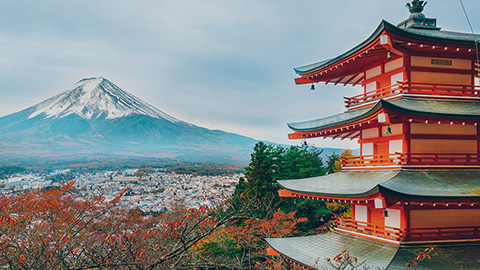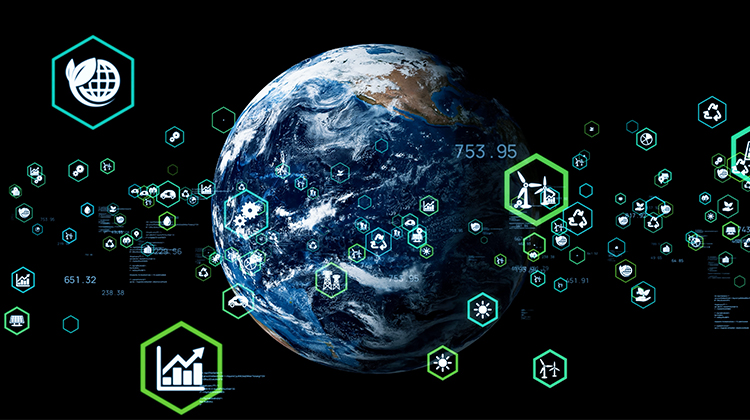May 2023
Japan's Hydrogen Revolution Attracts Global Players
February 2025

Japan is transforming its energy landscape, positioning hydrogen technology as a key component in its strategy to meet its commitment to net-zero emissions by 2050. To achieve its ambitious goals, the Japanese government is taking an approach based on public-private partnerships, welcoming companies from around the world to invest in Japan's hydrogen future.
Japan plans to invest approximately 15 trillion yen from the public and private sectors over the next 15 years to build a hydrogen supply chain, marking one of the most significant financial commitments to hydrogen technology globally.1 This strategic investment aims to build a robust supply chain to ensure stable hydrogen availability while reducing costs.
Bringing down costs
The high cost of production and supply remains the biggest obstacle to developing the hydrogen economy. Japan has set an ambitious target of reducing the cost of hydrogen to 20 yen/Nm3 by 2050.2 To achieve this, the government has enacted a Hydrogen Society Promotion Act, which includes two subsidy schemes: a Contract for Difference-type scheme designed to bridge the price gap between low-carbon hydrogen, etc., and conventional fuels, and the creation of infrastructure hubs to make nationwide hydrogen distribution more efficient.3
Innovation through public-private partnerships
A key element in Japan's approach to ensuring the stable supply of hydrogen involves promoting public-private partnerships. These partnerships are transforming how hydrogen is produced, transported, stored, and utilized throughout the country.
One such partnership is Chiyoda Corporation's work with New Energy and Industrial Technology Development Organization (NEDO), which has established a pioneering hydrogen supply chain using methylcyclohexane (MCH) as a hydrogen carrier. In 2020, over 100 tons of hydrogen was transported from Brunei Darussalam to Japan, demonstrating the feasibility of large-scale hydrogen transport. "Japan is a country with great potential demand for hydrogen," said Yasuhiro Inoue, general manager of the Hydrogen Business Department of Chiyoda Corporation. "From a global perspective, the Japanese government is being very proactive in providing funding to bridge price differences and launching various public-private partnership projects to promote hydrogen implementation."
Another example is the Green Hydrogen Project, a partnership between Germany's Siemens Energy and Japan's Toray Industries, supported by NEDO. The venture aims to develop green hydrogen production technology using Polymer Electrolyte Membrane (PEM) water electrolysis. "One of Japan's strengths is that it has many companies that possess advanced technologies for hydrogen production," said Yasuhiko Otsuki, managing director of Siemens Energy K.K. "In particular, Japan has strong materials manufacturers. Japanese companies are also very reliable and easy to work with in terms of delivery schedule and other work procedures," Otsuki said. He also said that Japan's economy, which is the fourth largest in the world by GDP, stable political climate, and respect for intellectual property rights make it an attractive destination for not just hydrogen investment but for renewable energy as a whole.
Investing in collaboration
Japan's hydrogen market potential has attracted significant international interest, with companies bringing innovative technologies to Japan's shores. Chiyoda Corporation's partnership with Germany's INERATEC is one such example, combining INERATEC's advanced Power-to-X (PtX) technology with Chiyoda's engineering expertise to create synthetic e-fuels using green hydrogen produced from renewable energy sources. The partnership aims to accelerate the development of Japan's e-fuel market and support the broader Asia-Pacific region's transition to sustainable fuels. By creating new applications for green hydrogen in the transportation sector, this alliance is helping to drive hydrogen adoption while contributing to Japan's goal of achieving a carbon-neutral society by 2050.

Image of hydrogen implementation
Almatech, a Swiss company developing the Zero Emission Speed Shuttle (ZESST), a hydrogen-powered passenger hydrofoil craft, is another example of how diverse companies from around the world are coming to Japan, attracted by the country's commitment to hydrogen. "In terms of hydrogen, Japan is good for us," said Almatech CEO Hervé Cottard. "It's an archipelago, so it's full of waterways. It's 6,800 islands, a lot of people, a lot of commuters, and a very big push on hydrogen. I would say that Japan is a well-advanced country in hydrogen technology."
Almatech's entry into Japan's hydrogen market was facilitated by e5 Lab, a consortium of major companies working towards the electrification of Japan's maritime industry. This was complemented by support from Kobe City, where Almatech participated in the SDGs Challenge 2022, a co-creation program. The collaboration with e5 Lab, combined with Kobe City's support, enabled Almatech to broaden its network and foster new relationships with key national institutions such as the Ministry of Economy, Trade and Industry (METI), demonstrating the importance of both corporate and government partnerships in accessing Japan's growing hydrogen market.
A bright future for hydrogen
To supply inexpensive hydrogen in large quantities stably and over the long term, Japan has set a target of supplying up to 3 million tons of hydrogen per year by 2030 and approximately 20 million tons per year by 2050.4 These strong government incentives and increasing international investment will accelerate the hydrogen market growth.
Additionally, Japanese companies are global leaders when it comes to patent registrations. Japan accounts for nearly one-fourth of hydrogen technology patents worldwide, covering a significant variety of areas.5 Many of these are related to vehicle fuel cell systems, as well as hydrogen production and supply, with a particular focus on hydrogen end-use applications.
The Japanese model for hydrogen implementation is increasingly being viewed as a blueprint for other nations' hydrogen strategies. With its robust framework of public-private partnerships, strategic investments, and clear policy direction, Japan is not just developing its domestic hydrogen market but is also shaping the global future of renewable energy. The Japan External Trade Organization (JETRO) welcomes overseas companies with hydrogen-related technologies by supporting their entry into the market and promoting their collaboration with Japanese companies.
-
1
Ministry of Economy, Trade and Industry 2023. Basic Hydrogen Strategy, Chapter 3, Section 4(1).
-
2
See Note 1, Chapter 3, Section 1(2).
-
3
Agency for Natural Resources and Energy. Hydrogen Society Promotion Act Enacted, Toward a Forthcoming Hydrogen-based Society, Part 2: Utilization of Clean Hydrogen.
-
4
See Note 1, Chapter 3, Section 1(1).
-
5
EPO and IEA 2023, Hydrogen Patents for a Clean Energy Future: A Global Trend Analysis of Innovation Along Hydrogen Value Chains
This article was originally posted in Business Insider on February 17, 2025
Learn More
Contact Us
Investing in and collaborating with Japan
We will do our very best to support your business expansion into and within Japan as well as business collaboration with Japanese companies. Please feel free to contact us via the form below for any inquiries.
Inquiry FormJETRO Worldwide
Our network covers over 50 countries worldwide. You can contact us at one of our local offices near you for consultation.
Worldwide Offices

































